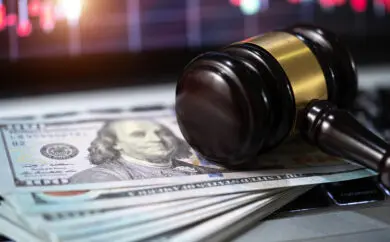
Money laundering, or the processing of illegally obtained funds to make them appear legitimate, is big business. The United Nations Office on Drugs and Crime estimates the total annual value of laundered money at 2–5 percent of global GDP, or […]

Money laundering, or the processing of illegally obtained funds to make them appear legitimate, is big business. The United Nations Office on Drugs and Crime estimates the total annual value of laundered money at 2–5 percent of global GDP, or […]

Financial crime units (FCUs) help banks and financial institutions detect and prevent money laundering, the financing of terrorism and a variety of other financial crimes while meeting their regulatory compliance obligations more effectively. In a rapidly changing financial sector, criminals […]

The Vancouver Model is a method of money laundering that is highly used in Vancouver, British Columbia. The model uses casino gambling as a way for foreign and domestic criminals to launder illegitimate funds and exploits Canada’s traditionally lax regulatory […]

Crimes that generate significant financial proceeds, such as theft, extortion, and drug trafficking, almost always require a money laundering component so criminals can avoid detection by authorities and use their illegally obtained funds in the legitimate economy. Given the regulatory […]

How anti-money laundering efforts combat human trafficking Human trafficking is the criminal trade of men, women and children for the purposes of commercial sex, forced labor or other forms of exploitation. There are currently over 40.3 million global victims of […]

In its most simple form, financial misselling means recklessly misrepresenting a product or service in order to successfully complete a sale. Financial products are usually “missold” in order to make an individual or company complete a purchase that does not […]

For more than a decade, terrorist financing has been a prevalent financial crime on which authorities are desperate to crack down. It became a major political issue after the September 11th terrorist attacks in the United States, and it has […]

Financial crime refers to any criminal conduct relating to financial services or markets. As regulators and monetary authorities introduce new strategies to detect and prevent financial crime, criminals develop increasingly sophisticated methods of evading scrutiny. Most jurisdictions have established organizations […]